Jeffrey Groah
Dr Jeff Groah's SiteHistorical Documents 5
James W Grow (Groah) worked on the homestead in July of 1861 while the other men were away in the Confederate Army serving under Stonewall Jackson. At seventeen, he was not of age but was the only male able to do work. The farm was under the control and supervision of an estate administrator, John Newton. James’ father, Philip, died on 8 Oct, 1860, just prior to the start of the war. I give below a receipt for work done reaping, hauling and threshing grain (wheat) on the homestead that summer. Pay was received in November of 1862, by which time the pay was worth considerably less due to inflation in Confederate currency. A barrel of flour before the war might cost between $4.50 and $5.50. By this time, the cost would have been about $35, so James’ wages would have lost considerable purchasing power. Also, the paper usually published flour prices every week before and during the initial phases of the war. They stopped publishing those prices because it was embarrassing to the Confederate government.
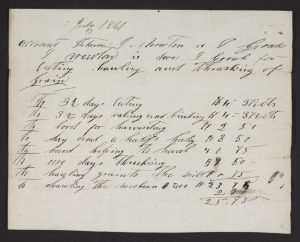
1861 Receipt for James W Grow Front
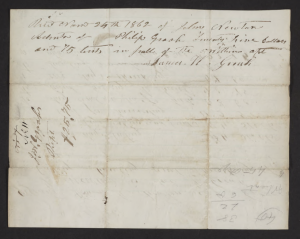
1861 Receipt for James W Grow Back
James was a witness to his mother’s request of the Augusta County Court to permit his sister (age 15) to be married in 1861. She was married on 14 February 1861 to the 25 year old Thomas M Croson. After the death of Philip Grow, it was imperative that an adult male be brought onto the farm in order to keep the family afloat. Isabella was the manner in which this was done. We have the tear stained letter submitted to the court below, but note that James’ mother, Margret, signed her name “Margret Grow” while James signed his name “James W Groah”. He would change the spelling of his name later.
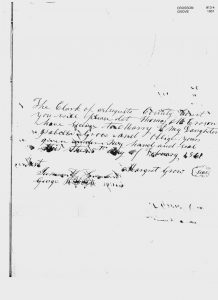
Court request to permit the marriage of Isabella Grow
In the following document, Philip Grow cosigns a note for $12 for his cousin, Philip A Groah. Philip Grow was legal guardian for Philip Adam Groah.
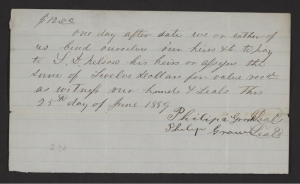
1859 Note for Philip Grow
The following is a note signed by Philip and cosigned by constable John J Larew (later tax collector for the Confederate States), for the purchase of a portion of the Hawpe estate.
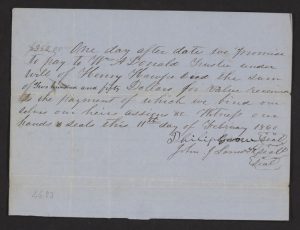
1860 note by Philip Grow
The following is a note signed by Philip Grow and cosigned by J. D. McGuffin for a portion of the Hawpe estate.
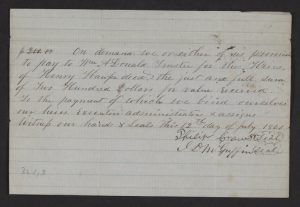
1860 Note by Philip Grow
Philip Grow was unable to pay the debts above since he died in October of 1860. The estate administrator, John Newton, attempted to pay the debts with Confederate money, but that was rejected by Mr. Donald, the administrator of the Hawpe estate, who refused to take Confederate money. Consequently, John Newton invested the money in a Confederate Bond earning 8 percent interest. He also detached five coupons worth $100 for himself as a reward for the investment.
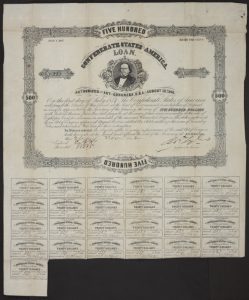
Confederate Bond
John Newton submitted the bond to the Augusta County Court after the war when it was worthless, and Mr Donald was never paid.